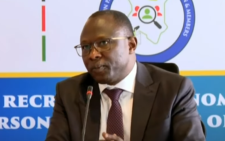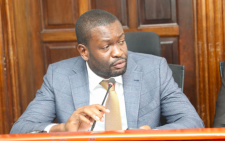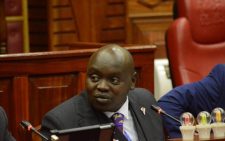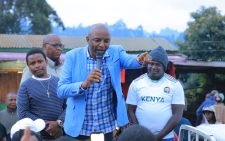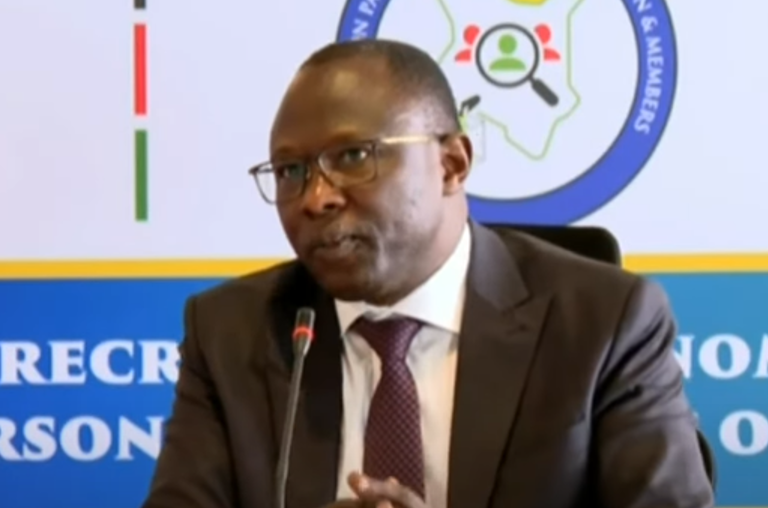Police killed 104, 55 missing after arrest last year, says lobby
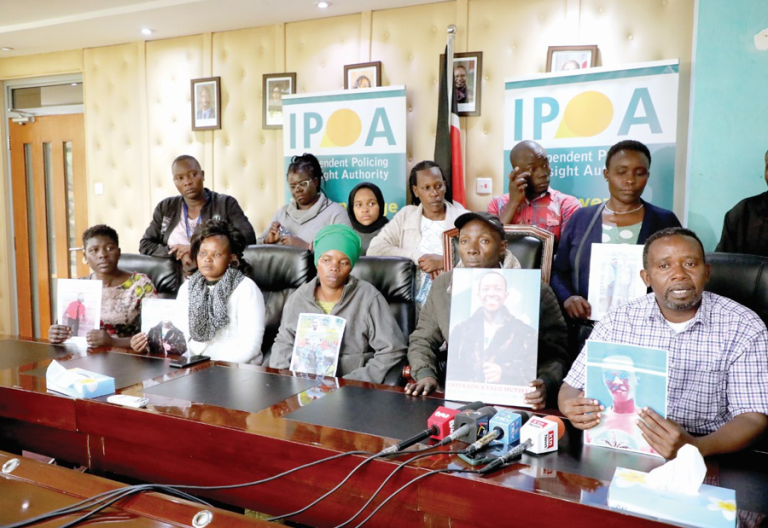
A total of 104 people were killed by security officers, while 55 others disappeared in the hands of police last year, a report by the lobby group Missing Voices coalition says
Last year recorded the highest number of cases of enforced disappearances. Before then, 2019 had the highest number of cases of enforced disappearances at 38, the coalition says.
The report indicates that cases of enforced disappearances by police increased by nearly five times last year, from 10 cases in 2023 to 55 in 2024.
June and July were the deadliest months in both 2023 and last year, with Nairobi being the deadliest county for extrajudicial killings, followed by Kiambu and Migori.
Nairobi had 38 cases, followed by Kiambu 9 cases, Migori 6, Kakamega and Nakuru had five cases each, with Makueni and Uasin Gishu recording 4 cases of police killings.
Extrajudicial
According to the report, cases involving extrajudicial killings are rarely taken to court, with less than 2 per cent of the cases taken to court.
“Most victims of enforced disappearances were neither prosecuted nor allowed to demonstrate their innocence in court of law. They have not received justice or compensation by the time of the report,” the report states.
It adds: “Despite the high number of enforced disappearances, no officer has been taken to court and charged with the crimes. The Independent Policing Oversight Authority (IPOA) has reported 60 cases arising out of the protest; however, so far, only two have been taken to court.”
Missing Voices also said last year saw an increase of 24 per cent of cases of enforced disappearances and police killings compared to 2023. However, cases of police related killings saw a drop of 12 per cent from 118 in 2023 to 104 in 2024.
“Most cases of extrajudicial killings took place during the Gen Z demos between June and August, with June recording the highest number of cases at 38, 11 July cases and 9 August, bringing police killings cases to 58 during the protest period,” the report states.
Most victims of extrajudicial killings were youth aged between 18 and 34, while a majority of those killed were youth at 79, followed by adults at 18, and minors below 18 years were 7.
Males, and especially young men, continue to bear the brunt of the cases of police killings. According to Missing Voices, 91 per cent of the victims of extrajudicial killings were men compared to 9 per cent who were female.
Enforced disappearances
The coalition, however, said the 2024 enforced disappearance statistics exclude 36 members of Uganda’s Forum for Democratic Change who were abducted in Kisumu on 23 July 2024.
The 104 incidents of extrajudicial killings exclude 50 bullet-riddled unclaimed bodies in the City Mortuary reported to have been booked on July 25, 2024, the coalition said.
“While these bodies were booked at the height of the protest, Missing Voices has yet to verify and establish the link to police action independently,” the coalition said.
They, however, mentioned them in the report due to their magnitude, as was done during the documentation of River Yala bodies in the 2022 report, since the manner of killings was suspicious.
“Missing Voices highlighted the 50 cases, even though they are not part of our verified totals. There are two people whom the police said had committed suicide. They have been documented as deaths while in police custody,” they added.
According to the coalition, the challenges of investigating and prosecuting cases emanating from protests have necessitated the doctrine of command responsibility, which the coalition partners are pursuing in the Baby Pendo case.
“We are concerned that the DPP dropped charges against 8 senior commanders who had been lined up for prosecution. Even more worrying was the move by the DPP to expose witnesses in the charge sheet, endangering their lives,” they said.
Public order violations
The coalition also said it was worrisome that the majority of cases forwarded to ODPP arising from protests have either been returned for further investigation or closed, making it difficult to hold police officers to account for public order management violations.
“We are deeply concerned about the excessive use of force, especially during election periods and consequential picketing and peaceful protests that frequently have ended in assault, grievous harm, and sadly, loss of life,” they said.
They also urged the investigative agencies, including IPOA, IAU and the DCI, to adopt advanced technological tools, such as photo metadata analysis, to strengthen evidence-gathering in cases involving unlawful use of force and firearms during public protests.
“Reliable digital evidence is critical to ensuring accountability and restoring public trust in law enforcement,” they said.
They also demanded that the National Police Services to undertake intense radical reforms that will ensure non-reoccurence of the violent policing seen in 2024; that IPOA and ODPP urgently act on cases touching on command responsibility to address deaths during protests; and parliament to allocate funds to the Victim Protection Fund to adequately cater for reparations for all victims and families of extrajudicial killings and enforced disappearances.
The coalition also wants the state to fulfil its commitment to ratify the International Convention for the Protection of all Persons from Enforced Disappearances that Kenya signed in 2007, and for Parliament to enact legislation to specifically criminalise enforced disappearances under domestic law.
“The Executive needs to implement the National Coroner’s Service Act and establish the National Coroners Service to support independent investigations into all deaths,” they added.
The Law Society of Kenya (LSK) President Faith Odhiambo said the report is not just a compilation of statistics but a mirror that reflects both the cruelty of impunity and the courage of accountability.



